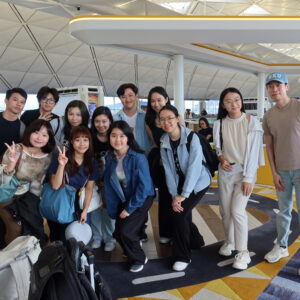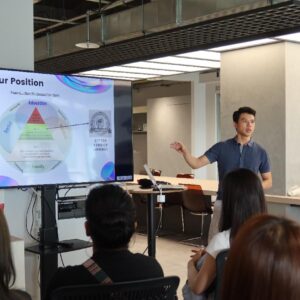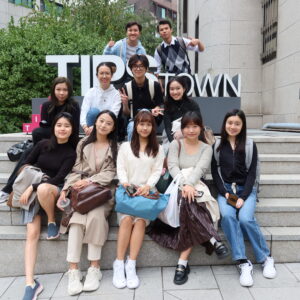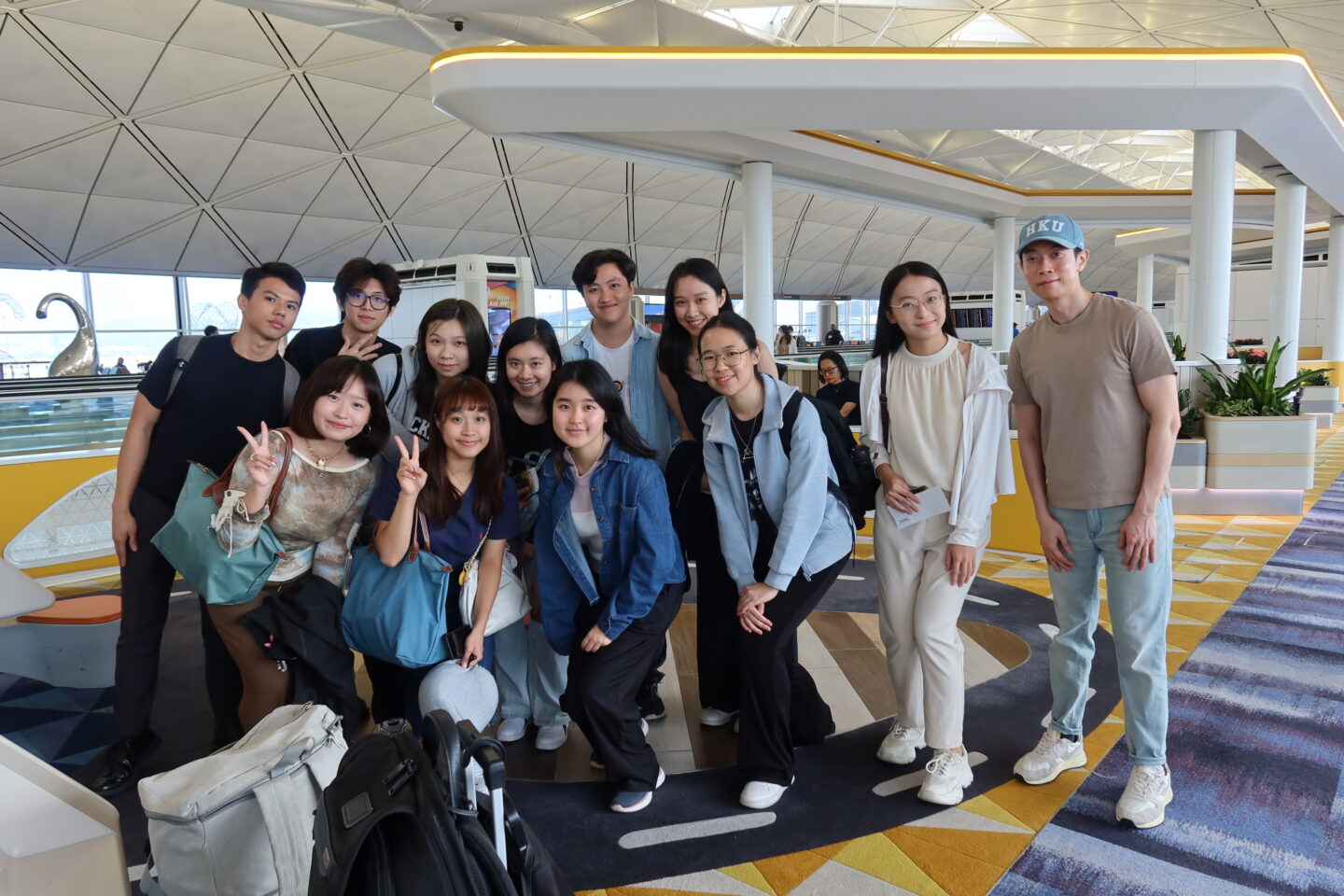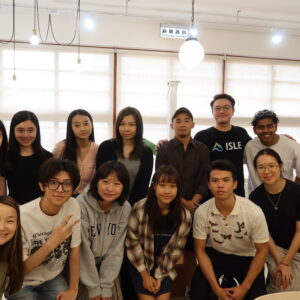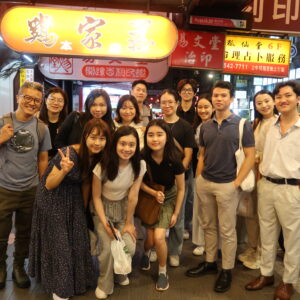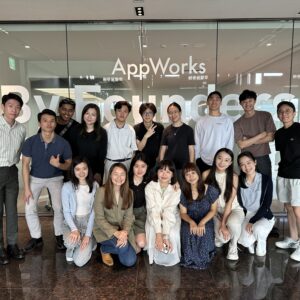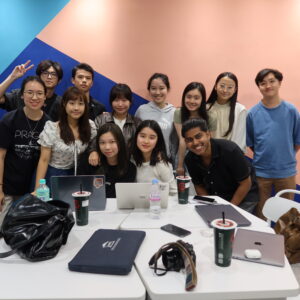Introduction
The POLI3117 field trip to Seoul and Taiwan provided valuable insights into Web 3 technology and entrepreneurship. I focused my observations on three key areas: Blockchain, AI & VR, and the entrepreneurial environments in the two cities.
Blockchain
As a blockchain enthusiast, this field trip offered me valuable insights into Asia’s blockchain landscape and inspired new ideas in entrepreneurship.
In Seoul, we attended a blockchain seminar at Seoul University, where we heard from an experienced blockchain startup founder. His entrepreneurship journey was particularly compelling—despite being offered a large investment that could have made him financially independent, he chose to prioritize his vision over immediate financial gain. This commitment to his ideals was admirable. However, he also shared that some of his teammates eventually left due to the lack of progress in the industry, which made me reflect critically on the nature of entrepreneurship. In the often harsh world of business, is it wiser to secure financial success first, as Elon Musk did when he sold PayPal to fund SpaceX, or should we always stay true to our ideals, even if it means facing significant setbacks?
In Taipei, the blockchain meetup showcased the vibrancy of the blockchain community—something I hadn’t experienced in a long time. The prolonged bear market had sometimes shaken my faith in the blockchain industry, but seeing its ongoing relevance in Taipei, where it has even integrated into daily life (despite some unfortunate cases of people being scammed), was reassuring for me as an enthusiast. The last day in Taipei was especially insightful; we met two startup founders who approached blockchain in completely different ways. One leveraged blockchain and DeFi to expand their existing Web 2 business, while the other focused on building a native Web 3 DeFi solution. I am eager to follow their progress to see which approach proves most effective in advancing blockchain technology.
AI & VR
At NTU in Taipei, we had the opportunity to hear from an experienced manager in HTC’s VR division. They discussed their innovative use of VR to train medical students, which I found truly inspiring. Previously, I believed there was still a significant gap between current VR
technology and the broader vision of the metaverse, which was the only application I was familiar with. Seeing how VR can already be applied in practical, impactful ways, especially in medical education, broadened my perspective on its real-world potential.
Later, during our visit to the headquarters of Digital Domain in Taiwan, I was amazed at the capabilities of digital humans and AI. One of the key points that struck me was the ongoing conflict between AI-generated content and copyright issues. AI-generated works are difficult to
trace back to their original sources, and current legal frameworks struggle to determine whether such content violates copyright. While AI works are essentially derived from existing sources, this made me question whether AI’s creative process is so different from that of human artists, who also draw inspiration from prior experiences and ideas.
As Dr. Daniel, the CEO of Digital Domain, mentioned, I believe that AI, VR, and blockchain technology will eventually intersect to create powerful applications. These Web 3 technologies have the potential to revolutionize our workspaces and everyday lives, making it crucial for us to understand and embrace them.
Entrepreneurial Environment
Last but not least, this field trip provided a unique opportunity to compare different entrepreneurial ecosystems, particularly the contrasting approaches in Korea and Taiwan.
From my observations, Korea’s entrepreneurial ecosystem appears to be predominantly capital-driven. During our visit to DCamp, we learned about the rigorous standards applied when selecting incubator projects, the substantial initial investment schemes, and the provision of working space, all of which highlight an emphasis on financial resources. Similarly, during our visit to the Korea Institute of Startup and Entrepreneurship Development, we saw how the Korean government is attracting global talent by offering generous funding opportunities. These aspects illustrate Korea’s well-developed entrepreneurial environment but also reveal its strong focus on capital as a driving force.
In contrast, Taiwan’s entrepreneurship environment seems to be more community-oriented. The blockchain discussion led by 動區塊聚 and the ecosystem created by ⽢樂⽂創 demonstrated a focus on community engagement, where founders and participants alike felt a sense of ownership and became active contributors to the ongoing projects. At AppWorks, the open office layout, vibrant working environment, and enthusiastic peer workers further emphasized this community-driven approach.
These experiences are directly relevant to the course and my personal goals. I believe that for a social enterprise to succeed, it needs to strike a balance between capital resources and community building, as both are crucial for sustainable impact.
Conclusion
Overall, the POLI3117 field trip offered me valuable insights into the current state of Web 3 technology and the entrepreneurial landscapes in Seoul and Taiwan. Observing the blockchain community, the applications of AI and VR, and the contrasting entrepreneurial ecosystems helped me understand the various factors that drive innovation and community building in these regions. The experiences not only deepened my appreciation for the diverse approaches to technology and entrepreneurship but also reinforced the importance of balancing financial resources, technological advancement, and community engagement. Moving forward, I aim to integrate these insights into my future endeavors, striving to contribute meaningfully to the evolving world of Web 3 technologies.

